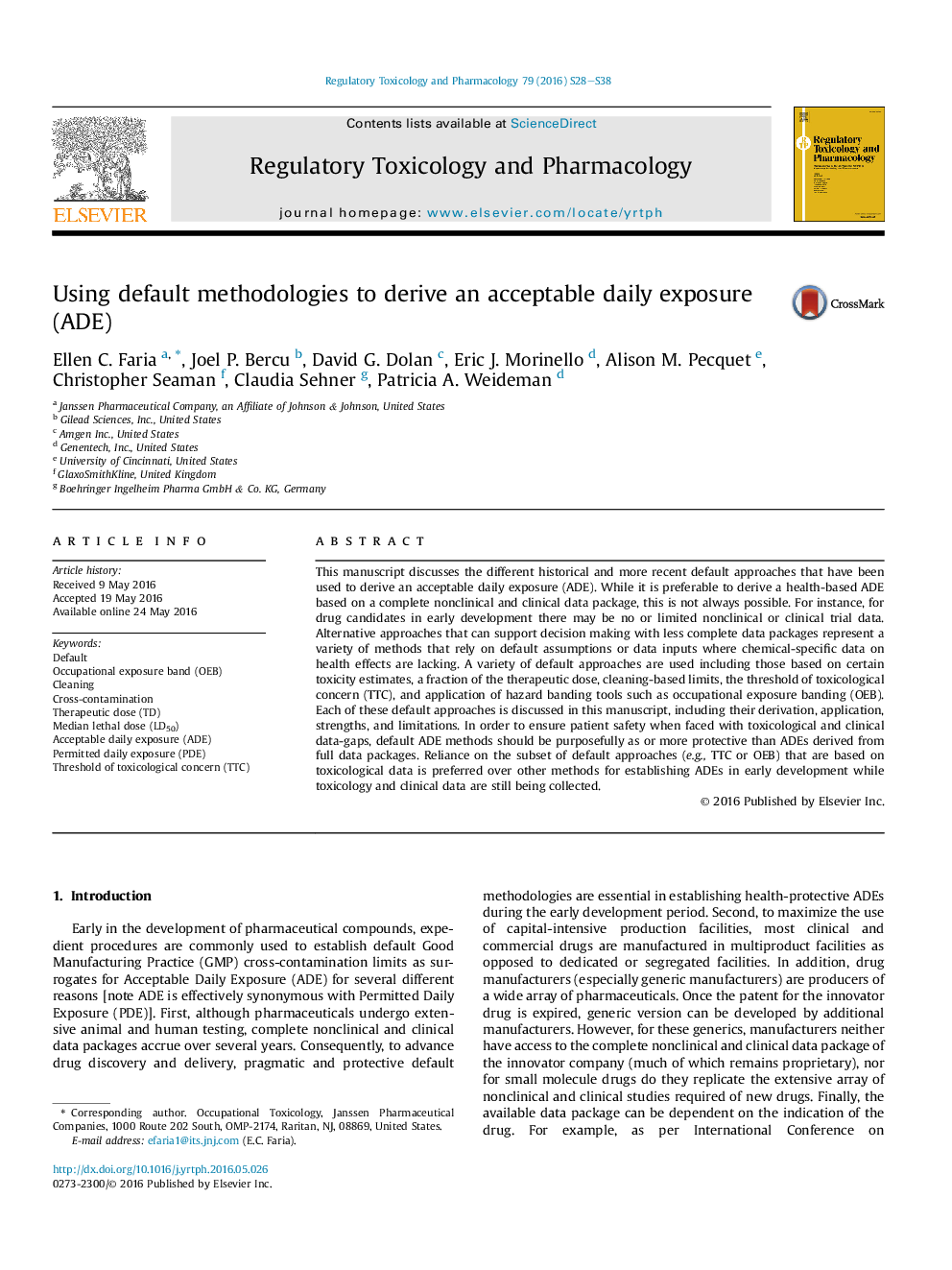| کد مقاله | کد نشریه | سال انتشار | مقاله انگلیسی | نسخه تمام متن |
|---|---|---|---|---|
| 2592278 | 1131964 | 2016 | 11 صفحه PDF | دانلود رایگان |

• Historically, cross-contamination limits have been selected using a default methodology.
• Default methods are predictive, but there can be issues in application when they are not based on toxicological data.
• Data-derived approaches (TTC or hazard banding) are recommended when data are too limited to derive a health-based ADE.
This manuscript discusses the different historical and more recent default approaches that have been used to derive an acceptable daily exposure (ADE). While it is preferable to derive a health-based ADE based on a complete nonclinical and clinical data package, this is not always possible. For instance, for drug candidates in early development there may be no or limited nonclinical or clinical trial data. Alternative approaches that can support decision making with less complete data packages represent a variety of methods that rely on default assumptions or data inputs where chemical-specific data on health effects are lacking. A variety of default approaches are used including those based on certain toxicity estimates, a fraction of the therapeutic dose, cleaning-based limits, the threshold of toxicological concern (TTC), and application of hazard banding tools such as occupational exposure banding (OEB). Each of these default approaches is discussed in this manuscript, including their derivation, application, strengths, and limitations. In order to ensure patient safety when faced with toxicological and clinical data-gaps, default ADE methods should be purposefully as or more protective than ADEs derived from full data packages. Reliance on the subset of default approaches (e.g., TTC or OEB) that are based on toxicological data is preferred over other methods for establishing ADEs in early development while toxicology and clinical data are still being collected.
Journal: Regulatory Toxicology and Pharmacology - Volume 79, Supplement 1, 15 August 2016, Pages S28–S38